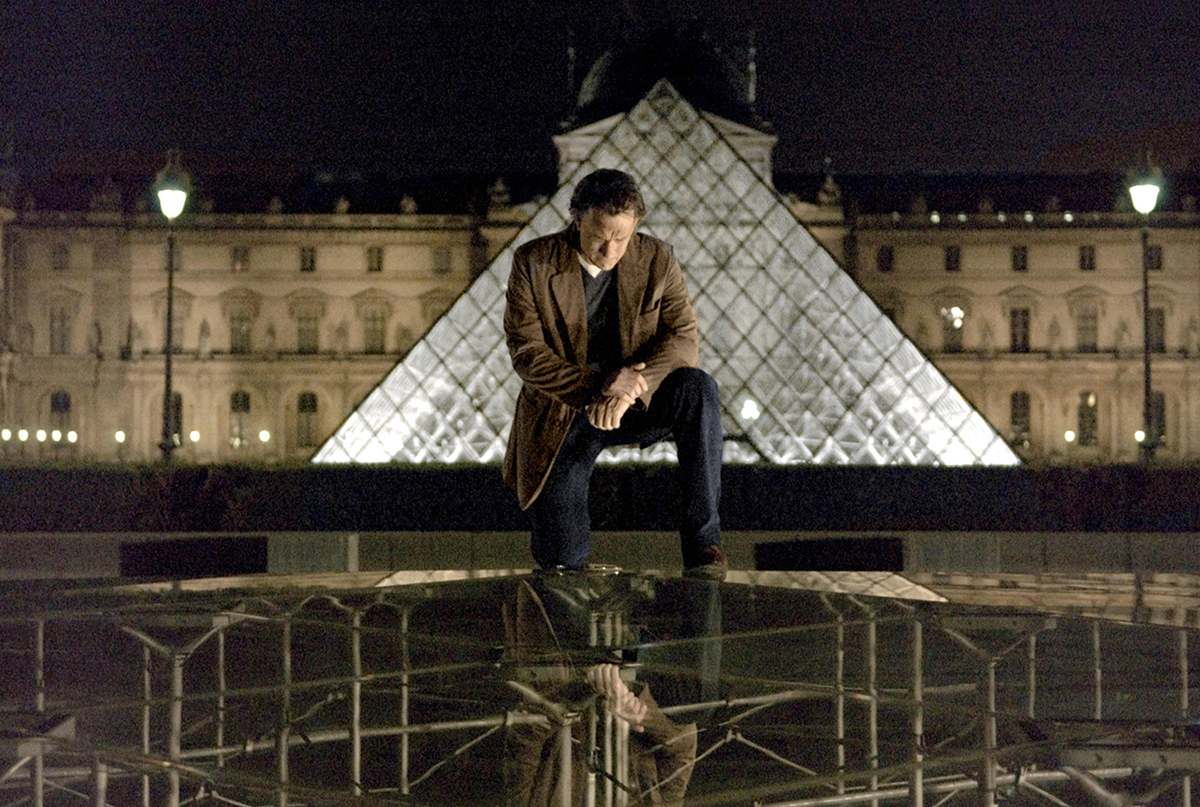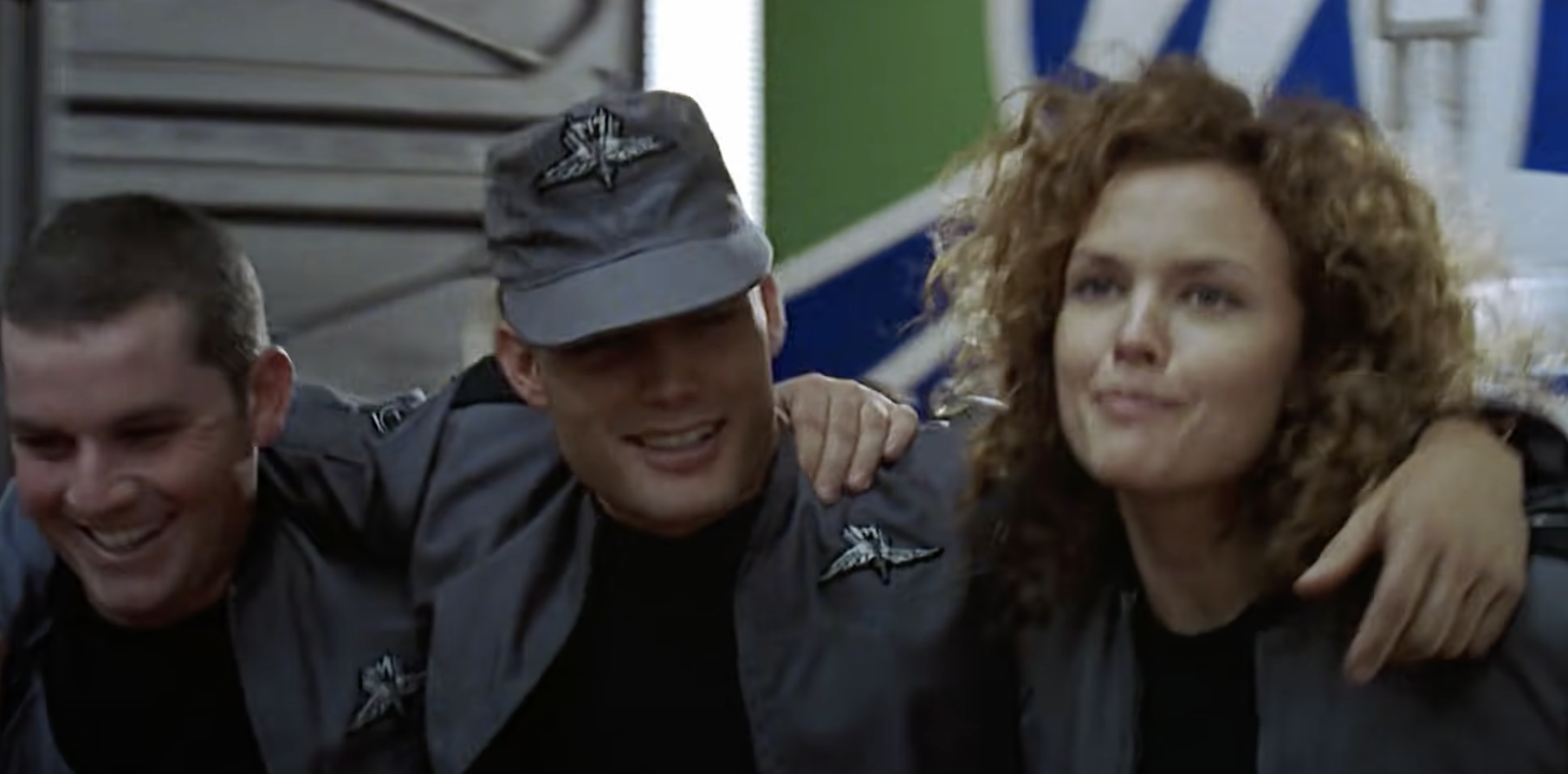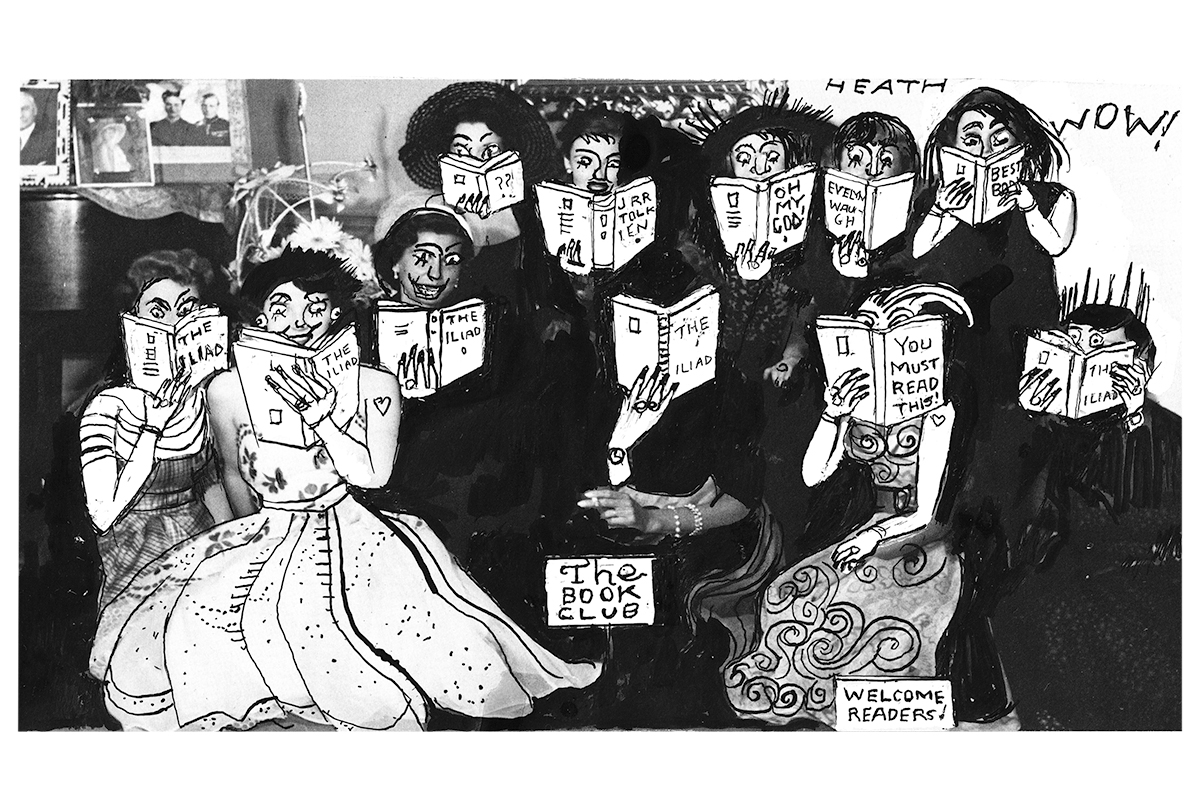William Boyd
It makes grim, compelling and minatory reading, but Hitler’s People (Penguin, $35) by Richard J. Evans is not only the only book you ever need to read about Nazi Germany but a salutary example of what happens when crazed populist leaders win power. Twenty-two short portraits of the key players and lesser apparatchiks of the Nazi years manage to encompass the whole history of the Third Reich and its baleful legacy. Evans’s hundred-page chapter on Hitler — the “Boss” — is masterly. Evie Wyld’s fourth novel, The Echoes (Knopf Doubleday, $28) with its edgy and moody supernaturalism (the narrator is a ghost) establishes her growing reputation as one of our finest young writers. And Jamie McKendrick’s eighth collection of poetry, Drypoint (Faber, $19), with its wise, pitch-perfect language and its cool allusiveness, reminds us why he is considered one of the greatest contemporary poets writing in English.
Amanda Craig
Lissa Evans is one of our great comic writers, yet her dark and witty novels from V For Victory to Their Finest remain less garlanded than they should be. Small Bomb at Dimperley (Doubleday, $31) should change that. Set in postwar Britain, it reads like the lovechild of Wodehouse and Eva Ibbotson: a working-class single mother and a demobbed baronet struggle to bring order to a decaying country house where every room contains a stuffed hunting trophy and a snobbish relation. Jonathan Coe’s The Proof of My Innocence (Europa, $18) is set during Liz Truss’s disastrous, if short, leadership and it will not only wither lettuces but make readers howl in mirth and agony at recent political lunacy. The novel, his best since What a Carve-Up, is a mash-up of cozy crime novel and state-of-the-nation satire. Lastly, for those dreading Christmas, Ysenda Maxtone Graham’s Screams (Abacus, $10) about the horrors and pleasures of modern life — from being stuck in a loop of Vivaldi’s Four Seasons while you hold the phone for the tax office to finding an unexpected parking place. Written with consummate wit and illustrated by Nick Newman.
Philip Womack
This year, John Freeman’s novella Hit and Run (Everand, $12) really stood out from the crowd: a small but beautifully shaped piece of fiction about the aftermath of a car accident that manages to be gripping, eerie and thoughtful. Mark Haddon’s collection of short stories, Dogs and Monsters (Knopf Doubleday, $28), contains some splendid riffs on the Greek myths, from the Minotaur to Actaeon’s turning into a stag. Lovely stuff.
Harry Mount
From 1954 to 1981, Maeve Brennan, an Irish journalist, sat in Manhattan’s bars and wrote down what she saw for the New Yorker. Her collected pieces were published in 1969 under the title The Long-Winded Lady (Counterpoint, $17), from her nickname in the magazine’s office. Brennan (1917-93) was the greatest outsider to get New York: “New York is not hospitable,” she wrote. “She is very big and has no heart. She is not charming. She is not sympathetic… When she glitters, she is very, very bright, and when she does not glitter, she is dirty… At home or away, we are homesick for New York not because New York used to be better but because the city holds us and we don’t know why.” In 1958, Brennan wrote fondly of a bar on 168th Street and “a warm but very soothing Martini, which cost me only 50 cents.” Those were the days.
Anne Sebba
I loved Precipice by Robert Harris (HarperCollins, $30), a meticulously researched, fast-paced account of the World War One love triangle between sixty-one-year-old prime minister H.H. Asquith, twenty-six-year-old Venetia Stanley and the man she ultimately married, Edwin Montagu. This true story has fascinated me for decades but as only one side of the correspondence has survived it needed a novelist of Harris’s caliber to fill in the other side and create a few characters too. Is Harris sympathetic or does he ultimately despise his protagonists’ rampant entitlement? A little of both, I think.
Jane Thynne also takes a real situation — Midnight in Vienna (Quercus, $30) in 1938 — and brilliantly weaves fictional characters into the factual crisis, like Harris evoking atmosphere and period detail in thrilling ways. For an uplifting, heart-healing novel of interlinked stories I’d recommend James McBride’s The Heaven and Earth Grocery Store (Penguin, $28). Balm for troubled times.
David J. Garrow
My two best books of 2024 are by good friends, a caveat that must be noted, but both Patrick Parr’s Malcolm Before X (University of Massachusetts Press, $30) and David Greenberg’s John Lewis: A Life (Simon & Schuster, $35) will be receiving widespread review attention this winter. I’ve called Parr’s superbly original work “the most richly documented book about Malcolm’s early life that we will ever have.” In similarly praising Greenberg’s, I’ve described it as “an authoritative and indeed definitive biography of a lovely and deeply principled man who was a true American hero.”
Of the ten or so books I’ve reviewed this year, the clear number one is General Kenneth F. McKenzie’s The Melting Point: High Command and War in the 21st Century (Naval Institute Press, $35) which I praised here as “a rich and powerful testament to the qualities that our best military commanders bring to their service to the nation.”
Clement Knox
The best fiction I read this year was Lawrence Osborne’s short story collection Burning Angel (Hogarth, $27). The title story (about a wealthy Brooklyn couple who hire a deaf maid through a shady agency) is the best, but they are all brilliant and have lingered in my mind for months. I greatly enjoyed reviewing Steve Coll’s new book The Achilles Trap: Saddam Hussein, the CIA, and the Origins of America’s Invasion of Iraq (Penguin, $35) for The Spectator. Coll’s account of how the United States government built up and then tore down Saddam’s regime has the flavor of epic. A mock-epic I enjoyed (published in 1967) was Norman Podhoretz’s Making It (NYRB, $17), a deliciously indiscreet memoir of literary celebrity that reads like a Philip Roth novel.
Christopher Sandford
Power and Glory: Elizabeth II and the Rebirth of Royalty, by Alexander Larman (St. Martin’s Press, $32) is a well-researched and fast-paced history of the British throne from the years 1945-53. It’s a familiar enough tale in its broad detail, but Larman meticulously fills in the tiny black dots — the Buchanesque saga of Prince Philip’s life before he married Elizabeth in 1947, for instance — that make up the whole picture. He is also good at capturing the physical atmosphere of the London of the 1940s, seemingly permanently winter-bound and sulfurously foggy, very much still the Victorian city, haunted by the past.
I also enjoyed Nicholas Shakespeare’s Ian Fleming: The Complete Man (HarperCollins, $45). How much of himself did Fleming put into his most celebrated literary creation, James Bond? Quite a lot, Shakespeare suggests, at least in terms of the character’s smoking, gambling and womanizing, if not his fabled obsession with gadgets. At 864 pages, the book might have offended Fleming’s own gift for clinical brevity, but otherwise stands as the definitive treatment of its subject.
Daisy Dunn
A.N. Wilson’s new biography of Goethe, His Faustian Life (Bloomsbury, $35), is weighty but splendid. It spins cleverly out of Faust and demolishes the barriers which have until now kept us at arm’s length from the polymath and his work. Goethe, Wilson argues, is just like us in his global thinking, post-Christian faith and disapproval of nationalism. To lay bare a mind as complex as his is Wilson’s astonishingly beautiful feat. Love From Venice: A Golden Summer on the Grand Canal (Hodder, $29) by debut author Gill Johnson, who turned ninety-two this year, made me nostalgic for a time long before I was born. Johnson spent the summer of 1957 as a nanny to two young boys of the Brandolini d’Adda family in Venice. Drawing on the letters she sent her fiancé, Johnson vividly recaptures the glamour and sprezzatura of life on the Lido and beyond.
Andrew Roberts
Adam Zamoyski’s Izabela the Valiant: The Story of an Indomitable Polish Princess (HarperCollins, $30) reads like the tale of an even-more-improbable-than-usual opera, full of czars, revolutions, affairs, Napoleonic upheavals, witty salon repartee and profoundly emotional moments of love and loss. The heroine was the author’s ancestor, though he is far too objective a historian to let that affect the tale. Richard Davenport-Hines’s History in the House (HarperCollins, $32) superbly examines a small group of distinguished historians, including Hugh Trevor-Roper and Robert Blake, who dominated the teaching of modern history at Christ Church, Oxford, in the late nineteenth to mid-twentieth centuries, and the immense effect they had on British politics and statecraft. The Return of the Grey Partridge (Profile, $28) by Roger Morgan-Grenville and Eddie Norfolk is a charming and well-written personal story of the duke’s successful fight against the depredations against the ecosystem of Britain’s South Downs. Noblesse oblige at its best.
Alexander Larman
I can’t think of any living novelist whose books I enjoy more than William Boyd, and his latest, Gabriel’s Moon (Grove Atlantic, $28) is a page-turning, rip-roaring Sixties-set spy novel with a side order of literary allusion and an infectious sense of fun. Sequels are promised, and I cannot wait. Craig Brown’s Q: A Voyage Around the Queen (Farrar, Straus and Giroux, $35) continues this fine writer’s new tradition of biographies told in pointillist fashion; although I was initially dubious about the approach, I laughed more by the end than at anything else I read all year. Charles Spencer’s A Very Private School (Gallery Books, $29) is the saddest book I can remember encountering in an age, an alternately angry and anguished account of childhood abuse he suffered at that grimmest of institutions, an English fee-paying school. And the best book I read this year was Paul Murray’s magnificent family saga The Bee Sting (Picador, $20), a literary novel that has the page-turning brio of the very greatest commercial fiction.
Lisa Hilton
Perhaps the most exuberantly brilliant book about art for decades, Get the Picture (Penguin, $29) chronicles Bianca Bosker’s interactive immersion in the world of contemporary galleries, museums and fairs. Setting out to understand a medium she, like many gallery-goers, found confusing and alienating, Bosker worked as an artist’s assistant, museum guard and Art Basel gallerina, encountering repulsive wealth, heartbreaking passion and joyful epiphany. “Art is a choice. It is a fight against complacency. It is a decision to forge a life that’s richer, more uncomfortable, more mind-blowing, more uncertain.” Sharp, shocking and very funny, her account will alter the way you see the world.
Oliver Soden
It’s been a year of wonderful letters. I’m looking forward to reading Oliver Sacks’s Letters (Knopf, $40) and have relished the correspondence of that great novelist Shirley Hazzard. Her biographer, Brigitta Olubas, has been more than industrious in mopping up the unfinished business of her research, working on not one but two volumes of letters. Hazzard and Harrower (NewSouth, $30), co-edited by Susan Wyndham, was a thrilling epistolary to-and-fro between Hazzard and her fellow Australian writer Elizabeth Harrower; Expatriates of No Country (Columbia University Press, $22) compiles Hazzard’s correspondence with a legendary scholar of Japanese literature, Donald Keene. In her letters as in her novels, Hazzard’s sentences take the breath with their almost uncanny commingling of perception and eloquence.
Philip Clark
Prefaced by one of the most perceptive critical essays I’ve read, Mark Harman’s new translation of Franz Kafka’s Selected Stories (Harvard, $30) proved the perfect way of reacquainting myself with Kafka’s kinked worldview: I’d forgotten that The Metamorphosis is farce run riot. British novelist Rebecca Watson’s bold second novel I Will Crash (Faber, $21) is about the aftermath of the death of a brother, and her disembodied, haunting prose — she pretty much dispenses with punctuation — takes you to the heart of her main character’s disorientation; nice to see Gertrude Stein making her presence felt too. After many years wondering who would have the guts to attempt such a thing, Philip Freeman’s biography of free jazz pianist Cecil Taylor, In the Brewing Luminous (Wolke Verlag, $42) came packed full of reflection, canny analysis and firsthand encounters with the great man. I also loved Tricia Romano’s oral history of the Village Voice, The Freaks Came Out to Write (Public Affairs, $35) both for the stories she tells and the manner in which she tells them.
Jane Thynne
Pamela Harriman was much disparaged throughout her life, largely for her ability to use sex to befriend powerful men. From an early meeting with Hitler (no sex), to her lasting relationships with Gianni Agnelli, the Gorbachevs, de Gaulle, Roosevelt — not to mention Averell Harriman, her third husband — her acquaintance spanned the gamut of twentieth century power. Sex in the Blitz with Harriman helped smooth the US into the war and her soft power culminated in her appointment as ambassador to Paris by Bill Clinton. Correcting Harriman’s reputation as a mere courtesan, Sonia Purnell shows us in Kingmaker (Penguin, $35) how, through tenacious intelligence and ambition, she escaped a narrow upper-class English background to become a key player in European and US politics. Purnell’s comprehensive research and great readability make this a panoramic saga of twentieth-century politics from wartime London to Washington and Paris, replete with delicious detail. Who knew that Randolph Churchill spent their honeymoon night reading to Pamela from Gibbon’s Decline and Fall? A total treat.
Robert Dean Lurie
I have not, regrettably, read Cormac McCarthy’s post-apocalyptic Pulitzer-winner The Road, but the oversight at least allows me to take in Manu Larcenet’s new graphic novel adaptation (Abrams Comicarts, $27) as a standalone work. Smudgy clouds of ash and gaunt, desperate faces jump out from the panels, as does McCarthy’s poignant but unsentimental dialogue. It’s all black and white except for the occasional splash of color from an unearthed soda can or candy wrapper. The result is dread-inducing but also hypnotic, darkly beautiful, and timely. Mamie Morgan’s poetry collection Everyone I’ve Danced With is Dead (Jackleg Press, $18) entices with the blunt force of its title, and its time-shifting vignettes of loss — physical, spiritual, spatial — and pleas for living connection accrue to powerful effect. Morgan’s wry, irreverent voice cuts to the essence of things.
Laura Thompson
My favorite novel this year was The Night in Venice (Hachette, $20) by A.J. Martin. Set in Venice and north London in 1911, it is the tale of a fourteen-year-old girl who is unsure whether she has killed her governess. Enigmatic, entertaining and profoundly imaginative, it is unlike any novel I have ever read. The girl’s narrative voice —intelligent, droll, occasionally unnerving — never hits a wrong note, a remarkable feat from a male author. In non-fiction, The Peepshow (Penguin, $30) by Kate Summerscale revisits 10 Rillington Place in West London, home to both the multiple sex murderer John Christie — executed in 1953 — and to Timothy Evans, also hanged for what were probably Christie’s crimes. The case is familiar, but the social context makes the book sad and gripping: bombed-out lives are set alongside the late Queen’s glittering coronation, and the atmosphere is as powerful as a pea-souper.
Nicola Shulman
Anne Somerset’s Queen Victoria and her Prime Ministers (Knopf Doubleday, $45) could hardly be worse served by its title. Under such a dire cover, though, one finds a humorous and dazzlingly well-informed story that exposes a frequently neglected side of this enchanting and infuriating woman — her busy political interference and the strategies her baffled ministers devised to negotiate their time with her. Somerset writes with immense acumen and perfect command of her subject, and you always get the feeling that she is engaged and amused. An amused writer makes for an amused reader. A joy.
I also admired Lucy Hughes-Hallett’s The Scapegoat (HarperCollins, $40), a biography of the original Gorgeous George: chancer, flatterer and possessor of the seventeenth century’s best legs, George Villiers, Duke of Buckingham. Unusually among royal favorites, Villiers, who shared James I’s bed and called him “my dear Dad,” was also the darling of James’s son, Charles I. Buckingham and Charles’s absurd escapade, running off to Spain in false beards to woo the Spanish infanta, has seldom been told with such brio. Hughes-Hallett is the kind of historian who fills in the gaps one is usually left to puzzle over: how did the “post” system of travel function? How do you negotiate a deal? What does the erotic language of James’s letters to Buckingham really mean? She deserves our gratitude.
D.J. Taylor
Earth to Moon (Dey Street Books, $30), Moon Unit Zappa’s no-holds-barred account of her upbringing at the hands of avant-garde musician Frank and his fatally disengaged wife Gail, falls into that increasingly common bookworld category, the anti-rock star memoir. The senior Zappas turn out to have been a kind of case-study of everything that went wrong in the West Coast American Sixties, and their daughter’s ability to construct a life for herself out of the years of neglect and wrongheadedness does her great credit. I also liked the British satirist Craig Brown’s Q: A Voyage Around the Queen (Farrar, Straus & Giroux, $35), which might be called an anti-royal biography. You will not, as one or two reviewers have noted, learn very much about the late Elizabeth II, for the book focuses on the reactions of her subjects when admitted to her presence. These are frankly hilarious.
Mark Piesing
This year, I was utterly gripped by James Holland’s The Savage Storm (Atlantic Monthly Press, $32), which takes first-rate military history and transforms it into literature, and Clare Mulley’s Agent Zo (Pegasus Books, $30), a powerful, brutal and haunting retelling of Polish resistance fighter Elżbieta Zawacka’s life.
I also thoroughly enjoyed Giles Milton’s gossipy, cinematic thriller The Stalin Affair (Henry Holt and Co, $30), which acted as a primer for Sonia Purnell’s rollicking Kingmaker: Pamela Harriman’s Astonishing Life of Seduction, Intrigue, and Power (Viking, $35). I could not put down Mick Conefrey’s timely exploration of George Mallory in Fallen (Pegasus Books, $30).
Moving to the present, I found Madhumita Murgia’s Code Dependent: Living in the Shadow of AI (Henry Holt and Co., $30) a refreshing and compelling antidote to more recent, hypey accounts. I was also completely enthralled by Kelly and Zach Weinersmith’s funny, factual and blunt A City on Mars (Penguin, $32), which explores all those things about space exploration and settlement that no one wants to talk about. The Apple TV+ show can’t be far behind.
Fergus Butler-Gallie
Jayne Manfredi’s Waking the Women (Canterbury Press, $21) is a marvel. A book about religion which manages to be entertaining and deeply moving, informative but never preachy. It gives voices to the often forgotten but does so with humor and humanity. Unlike the dreary tomes written by our bishops and church leaders, this is the sort of book which makes faith seem alive.
I adored Gill Johnson’s Love from Venice: A Golden Summer on the Grand Canal (Hodder, $29). It’s a joyous snapshot of an age — and a city — now gone but still just about summonable in ghost form down a calle or in a campo. Johnson writes with verve and joy and a genuine power of evocation. One can almost imagine being there, even if the cruelties of time mean we can’t be.
Finally, Craig Brown’s Q: A Voyage Around the Queen (FSG, $35) will be feted from rooftops as diverse as Buck House and Balmoral but it absolutely deserves it. Compelling, camp and probably the closest it’s possible to get to a picture of the oddness of the long second Elizabethan age via a portrait of the woman at its center.
Zack Christenson
My first pick, from Spectator contributor William D. Cohan, is Power Failure (Penguin, $40), a look at the rise and fall of American icon General Electric. Complete with hours of interviews that Cohan was able to secure with Jack Welch before his death, it charts how a company that boasts Thomas Edison as a co-founder grew to be one of the most powerful corporations in America before its slide into problems and the selloff of many of its business lines. My second is a collection of short stories from Amor Towles, Table for Two (Penguin, $32). Towles is an extremely talented writer whose prose makes just about anything seem interesting. His past novels, including the smash bestseller A Gentleman in Moscow, are enough to make me pick up anything he’s written — and this collection didn’t disappoint.
This article was originally published in The Spectator’s December 2024 World edition.























Leave a Reply